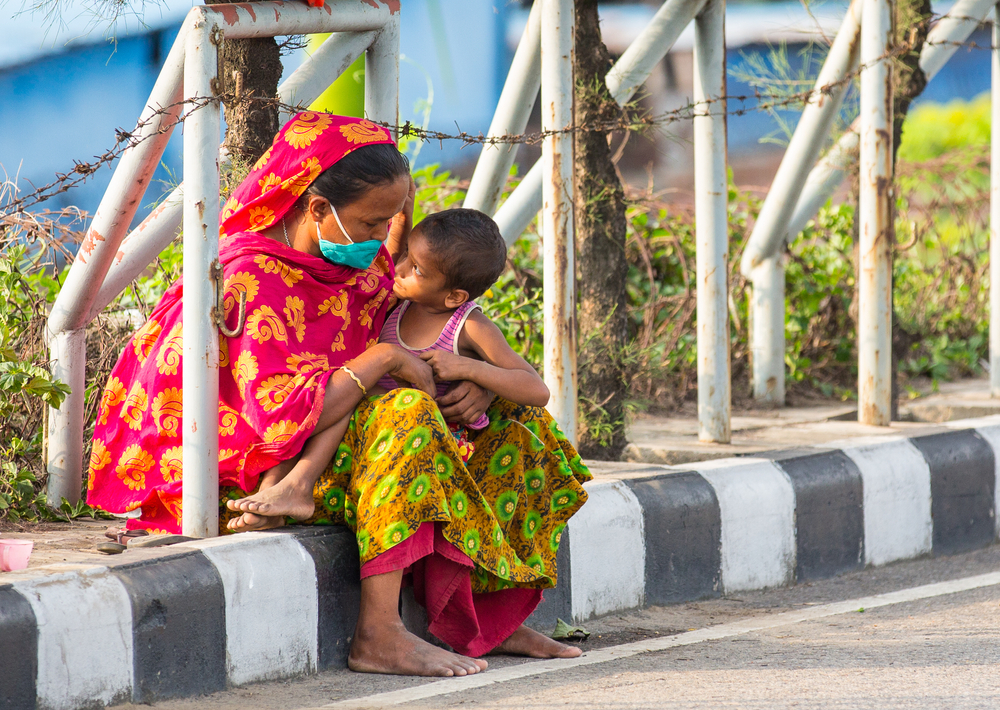Millions more children are in danger of malnutrition due to the coronavirus pandemic, researchers have concluded. They are calling on the international community to take action.
‘Due to the Covid-19 pandemic and the measures to control it, many people are struggling to access the nutritious food and healthcare they need,’ says Saskia Osendarp, a research at Human Nutrition and Health.
Good, nutritious food has gone up in price, and production, transport and sales have all fallen because of the coronavirus crisis
Saskia Osendarp, a research at Human Nutrition and Health
Osendarp helped set up the consortium Standing Together for Nutrition (STfN): a collective of experts in nutrition, food systems, health and economics set up at the start of the coronavirus pandemic to study its impact on the food supply. The consortium’s first research results were published in The Lancet Global Health Journal on 27 July.
Millions of children
The research shows that millions of people, mainly children in South Asia and sub-Saharan Africa, are at risk of facing serious food shortages because of the coronavirus crisis, partly because of the resulting economic crisis. Osendarp: ‘In our scenarios we saw that even a relatively brief lockdown can cause a fall in income of 7 to 9 per cent. Good, nutritious food has gone up in price, and production, transport and sales have all fallen because of the coronavirus crisis. And on top of that, food and social programmes such as school meals and support for pregnant women have come to a standstill too.’
Healthcare services come under enormous pressure as well, often making it impossible to prevent and treat malnutrition. When the researchers integrated the deterioration in healthcare projected by the UN’s children’s fund UNICEF in their models, they concluded that unless urgent action is taken, nearly 130,000 more under-fives will die in 2020 (the estimates range from 111,000 in the best case scenario to 178,000 in the worst case scenario). A further 6.7 million children will become severely malnourished. Osendarp: ‘This is a rise of 14 per cent on top of the 47 million children already suffering from acute malnutrition. An unprecedented number.’
Tip of the iceberg
These models predict the short-term effects. If the crisis goes on longer, other effects of malnutrition will inevitably increase. ‘This is the tip of the iceberg,’ says Osendarp. ‘The consequences of malnutrition have an impact on subsequent generations too. We know that maternal malnutrition can lead to chronic disease in children when they grow up, to lower education levels and as a result, to potential economic disadvantage in later generations.’
Progress wiped out
This is why Osendarp and her colleagues are sounding the alarm. ‘A great deal of progress has been made in recent years to combat malnutrition in mothers and infants. If we do nothing now, all that progress will be wiped out. Using the slogan “One virus, many consequences”, the researchers are making an urgent appeal to the international community to take action now. ‘We are asking other scientists to help, and donors and local governments to give priority to nutrition in their budgeting. This is absolutely vital if we want to achieve the Sustainable Development Goal of eliminating hunger by 2030.’
2.4 billion
According to the United Nations, 2.4 billion dollars is needed for emergency measures to restore food supplies and sustain healthcare services and food aid programmes for treating and supporting malnourished children and breast-feeding mothers.

 Mother and child in Bangladesh. Photo: Shutterstock
Mother and child in Bangladesh. Photo: Shutterstock